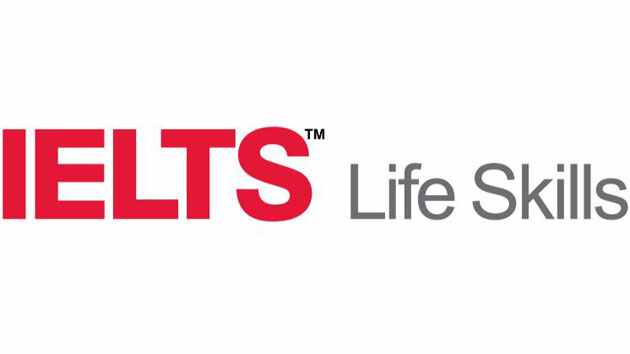Today, the field of healthcare is perhaps the most dynamic business globally. Due to the daily evolution in the technological sphere, new research flowing in constantly in the medical arena, and ever-changing policies, a health professional has his/her work cut out in maintaining a lifelong commitment to learning. That is the only way the health professional shall be abreast of these changes. Adequately sustained, lifelong learning is important in maintaining high standards of care, better patient outcomes, and assuring that health professionals are competent and confident in their practice.
This paper will discuss six key reasons why continuous learning is so important in the field of healthcare. From keeping abreast of medical technology to understanding new changing healthcare policies, here are major reasons today for ongoing education and professional development among people involved in healthcare.
Let's begin:
1: Advancements in Medical Technology
Medical technology is advancing with no signs of slowing down, and, hence, there are new devices, procedures, and treatment methods constantly being developed. Healthcare professionals need to keep pace with these technological surges. For example, new diagnostic instruments and machinery can be used in the care of a patient with dramatic increases in precision and speed. On the other hand, the use of these instruments in their profession will require proper training and education for healthcare professionals. Lifelong learning will help them be aware of practice development and embrace the latest technology to deliver the best service to patients.
For instance, in the field of nursing, it is necessary to keep up with the changes in technology. Nurses have to be well trained and exposed to new medical gadgets introduced in the practice and the adoption of new procedures involved. In relation, CCNE certification will ensure that nursing education is high as it equips students with the ability to change with technological progress. This certification ensures that nurses are well-equipped with knowledge and skills to keep up with the fast-changing healthcare environment. 2. Evolving Medical Knowledge
2: Evolving Medical Knowledge
Medical knowledge has been ever increasing with many more findings by researchers and scientists revealing new knowledge about diseases, treatments, and healthcare practices.
There is an urgent need for healthcare workers to keep pace with these rapid developments in medical research so that they can offer the best care for their patients. It comprises the regular reading of medical journals, attendance at conferences, and making time for continuous education. This way, a healthcare professional stays at the frontier of knowledge in medicine and is always incorporating new evidence-based practices into everything, which results in better outcomes for the patient. The fact that we know for sure that medical knowledge is never constant indicates that healthcare professionals should be ready at all times to unlearn the old practice for the new.
For instance, treatment protocols for different diseases can vary with new research. With time, a drug that was once considered to be the best in class must be overtaken by others, which would turn out to be comparatively more efficient. Continuous learning helps healthcare professionals to know such changes and practice accordingly so that their practice standards remain at par with the most recent guidelines and recommendations. This way, they can offer care that is current and supported by the most recent scientific evidence. 3. Healthcare Policy and Regulatory Changes
3: Changes in Healthcare Policies and Regulations
With so many waves of new legislation and health challenges, there have been various changes in healthcare policies and regulations. Communication of these changes is critical for health personnel to remain updated on laws and regulations to protect compliance and hence the quality of care. Continuous learning helps a professional develop an understanding of the ramifications of new policies and regulations on practice and to be adaptive in this regard.
For instance, new healthcare policies greatly influence the mode of dispensing healthcare services. With changing models of compensation, standards of patient care, and reporting, healthcare providers have to be updated on new regulatory changes. If a healthcare provider does not follow prescribed regulations, s/he will be faced with the risk of legal confrontation, fines, and poor patient outcomes.
4: Improving Patient Outcomes
Continuous learning affects patient outcomes in that it ensures healthcare professionals are always updated on new knowledge and acquiring new skills all the time. From time to time, new kinds of treatment grounds and protocols are introduced; hence, healthcare providers need to update themselves and be trained in applying the same. Continuous education among healthcare professionals helps in the adoption of the latest evidence-based practices in their care routines, which have helped improve recovery rates among patients and generally ensure satisfaction.
For example, learning about the latest techniques in patient care helps to ensure that healthcare providers can offer better and more personalized treatments. These could be new means to manage pain, a surgical procedure, or new rehabilitation techniques. Continued learning opens the ways to apply further knowledge and to treat following the individual needs of a patient, hence achieving the best possible outcome and boosting patient trust and belief in health care.
5: Enhancing Professional Development and Career Growth
Continuous learning makes it possible for practitioners within the healthcare area to develop and move forward in their careers. The healthcare industry is very competitive; consequently, those who make the requisite effort to expand their knowledge base and upgrade their skills will easily stand out in the job market and progress. Engaging in continuous education allows workers to undergo new certifications, specializations, and expertise, turning them into valuable employees for their current employers or other job opportunities they may apply for.
Further, lifelong learning encourages a culture of growth and always seeking the best in an organization. When health practitioners set an example in continuously educating themselves, all others look up to them to do the same for their growth. It highly benefits the self and also serves the more significant healthcare workforces efficiently.
6: Addressing Public Health Challenges
This should enhance the preparedness of healthcare professionals for any public health-related challenge, be it pandemics or emerging diseases, among other disasters in health. This will allow continuous learning that enables health workers to aptly respond to such challenges. Access to trends, guidelines, and best practices targeting the implementation of public health in the health field, therefore, allows healthcare professionals to protect their communities and care for them more adequately.
This has been underscored by recent health events, such as the COVID-19 pandemic. Health crises, such as the COVID-19 pandemic, should allow those in healthcare settings to adjust to any new information, treatment strategies, and preventive recommendations in the shortest time possible. Continuous education and learning will therefore empower a healthcare professional to handle such situations, reduce the spread of contagious diseases, and improve the survival rates of patients. Continuous learning will, therefore, also enable these healthcare professionals to play an essentially critical role in ensuring public safety in light of responding to prospective challenges in the healthcare sector.
Conclusion
Keeping abreast of technological advancement in medical equipment and changing medical knowledge, understanding healthcare policies, and bringing improvement in outcomes are a few of the areas in which continuous education would help maintain the competence and effectiveness of the practitioners.
Continuing education also aids in professional development, promotion, and career growth while empowering them to take on emerging public healthcare challenges. Used, healthcare professionals can aim for the highest attainable quality in care, adapt to new developments, and help improve the healthcare system generally through lifelong learning.

.jpg)




